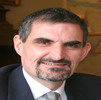At the recent World Economic Forum in Davos, the leader of The Energy Project, Tony Schwartz asked some of the world's leading Nobel Laureates during dinner what are the biggest challenges humanity is facing. Each of the Laureates called out challenges that we’ve been familiar with for the past few decades – the ever worsening problem of pollution, the increasing numbers of the unemployed, the ever widening gap and inequality between classes, and of course the constant increase of overpopulation. Challenges we’ve faced during the last quarter of the 20th century are still haunting us, and they’re getting worse.
Apart from the common theme of the ever worsening situation that humanity is in, is the fact that these challenges have all been created by us humans, and it seems we’re still not able to solve to them.
The question we have to ask ourselves is, why? The answer that Scwhartz and the Laureates came up with was that we’ve all been so focused on the here and now that we haven’t been able to make a conscious effort of relating our actions right now to what will happen in the future.
Muhammad Yumus, an economist from Bangladesh so eloquently put it when he was quoted as saying, “Leaders don't have time for the future because they're too busy with the present."
It seems we’ve all been so caught up in short-term effects we’ve never been able to prepare for long term success. According to Saul Perlmutter, a Nobel Prize winner and astrophysicist, “We're limited by being human. We want results fast, and we discount the future." This in addition to Schwartz noting that we humans have been ruled mainly by the primitive part of our brain the amygdale that strives for instant gratification and only respond to immediate threats.
Another example that glaringly illustrated how leaders and people are limited to dealing with short-term achievements and never thinking of long-term effects is found in our corporations. CEOs were asked whether they thought healthier and happier employees equalled higher productivity, all of course unanimously answered yes. When asked if their companies invested in making their employees healthier and happier, all unanimously answered they did invest – but very little.
Again we see that humanity is still going for the ‘more, faster, now’ myopic approach demanded by the amygdala. This, even after three Harvard researchers found that each dollar invested in wellness programs yielded $3.27 dollars in savings.
So how do we counter the primitive part of our brain and proceed to the next step in evolution? We should use our pre-frontal cortex more to counter the amygdala. Our pre-frontal cortex will help us in deducing the future consequences of our current actions and focus more on sacrificing near-term gains to obtain bigger future earnings.
But how will we do it? How do we become less myopic in our vision? Well, Richard Davidson and Tania Singer found that human brains can achieve extreme plasticity. This really means we can ‘train’ ourselves to look for future success instead of primitively giving in to the urge of instant gratification.
Instead of being interested in “ Immediate Satisfaction” we should concentrate more on “ Delayed Gratification”
Humanity has hope, it isn’t trapped in Pandora’s Box but trapped within each human being.
As Tony Schwartz said in Davos, he found that “to transform the world, we must first transform ourselves.”
How will you use your brain to prepare for your future? We have courses to show you how to utilise that gift into something worthwhile. You may Downloading Our Free Coaching Reports. Please do check on my blog about other writings that might interest you at Coaching Blog.

Post new comment
Please Register or Login to post new comment.